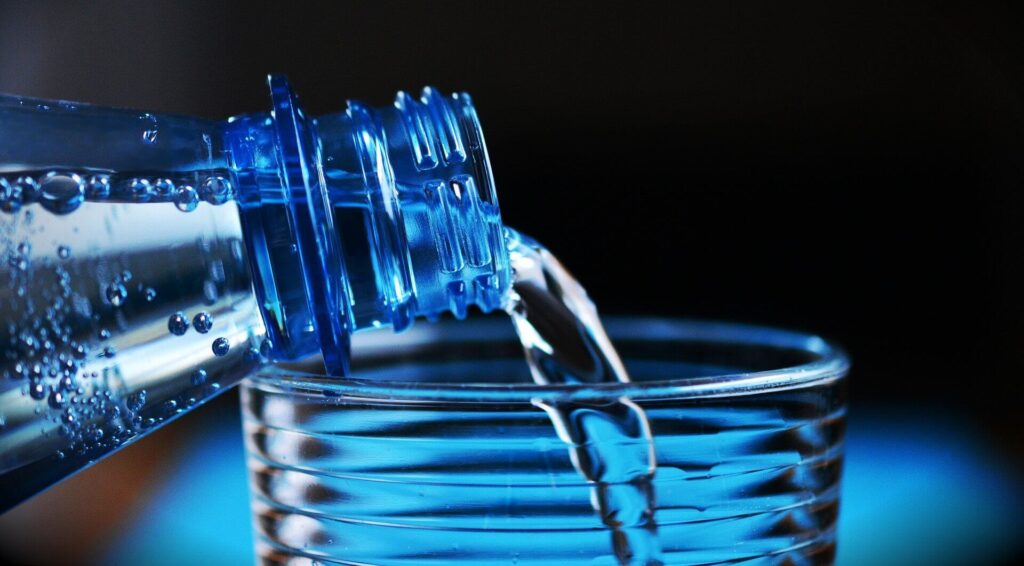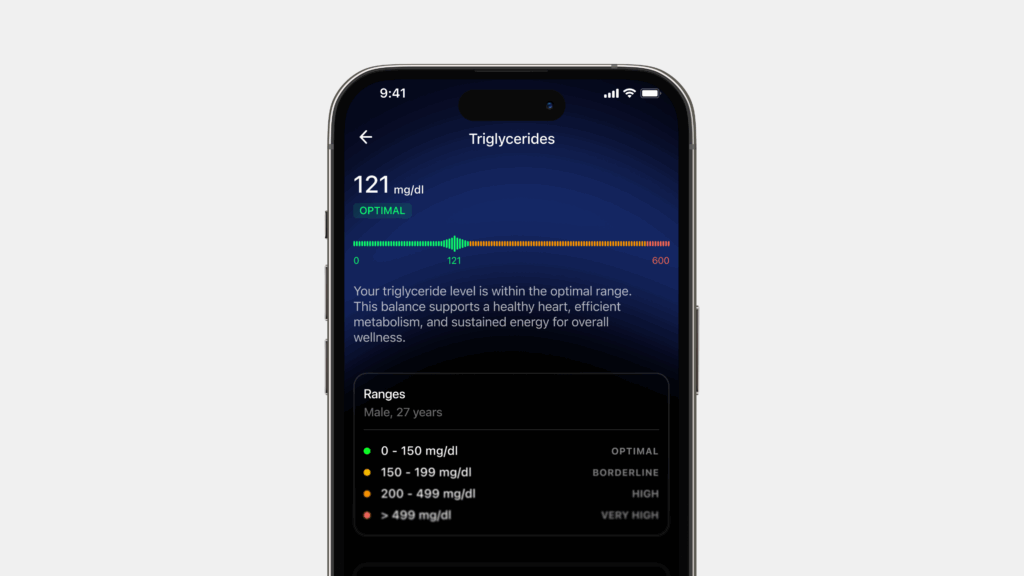Water makes up over half of your body weight 50 to 60 percent in women and 60 to 65 percent in men. Since water is involved in almost every biological function in the body, it is no surprise that consuming sufficient amounts of water is the first step in ensuring that your metabolism works at an optimal level.
Let’s understand the role of cellular hydration in our metabolic health.

Let’s understand the role of cellular hydration in our metabolic health.
Highlights
- When you lose more fluids than you take in, and the body does not have enough fluids to perform its normal processes, dehydration occurs,
- Your body’s metabolism slows down in a dehydrated state. A number of studies have found that dehydration reduces the metabolic rate, significantly slowing it down,
- Both mild and severe dehydration can have a notable impact on your glucose levels, which is tied to both metabolic health and conditions like diabetes.
What is Dehydration?
We commonly understand dehydration as a lack of enough water. But medically, dehydration is defined as the condition caused by the loss of too much fluid from the body. Hydration is one of the most important processes in your body, simply because it is essential for survival.
Every single part of our body, specifically the tissues, cells, and organs, needs water to function properly. Water delivers nutrients to cells and helps remove toxins and metabolic waste from the cells.
When you lose more fluids than you take in, and the body does not have enough fluids to perform its normal processes, dehydration occurs. Fluids are released from our body through sweating, urine, defecation, and breathing, making it important to replace those fluids.
Apart from drinking water, one of the ways to improve hydration would be to eat foods with high water content, such as cucumber, celery, or watermelon.
Potassium (an electrolyte) helps cells retain water, and foods like lentils kidney beans, apricots, banana, spinach, salmon, broccoli, and cantaloupe, which are high in potassium, are ideal to include in your diet.
What is Metabolism?
Metabolism is a series of chemical processes in each cell transforming the calories we eat into fuel to keep us alive. These processes sustain life, and everyday functioning, and include breaking down food and drink for energy and building or repairing our bodies.
These chemical processes comprise anabolism and catabolism. Anabolism is a series of chemical reactions that produce complex molecules from smaller units and allow the body to produce new cells and maintain all its tissues.
Catabolism is the breaking down of molecules, usually from food, and releasing energy. These reactions break down substances such as starches and turn them into glucose. This energy is used for physical activity and anabolic functions.
Although water occurs naturally in every cell, organ, and tissue in your body, the magnitude of its role varies considerably from system to system. Water makes up close to 90 percent of lung tissue and more than 80 percent of the blood that carries nutrients throughout your body.
Lean muscle tissue consists of approximately 75 percent water, while brain tissue has only slightly less water at about 70 percent. At the low end of the scale in terms of water content are body fat, which has about 10 percent water, and bone, in which water accounts for roughly 22 percent of total weight.
Given this, it should hardly come as a surprise to learn that dehydration can compromise the efficiency of most body functions, including metabolism.
Why Cellular Hydration is Important?
Since metabolism occurs at a cellular level, the body’s ability to create and burn energy is impaired when hydration is not sufficient. Changes in cell hydration are critically important for the signalling of metabolic responses to hormones, substrates, and reactive oxygen intermediates.
Increasing cell hydration allows cells to restore glucose transport across the cell membrane, which is an important part of the process of generating energy.
Glucose transporters are found in the plasma membrane, where they bind to glucose and enable its transport across the lipid bilayer. Water plays an essential role in the transport due to the osmotic permeability of the plasma membranes, and thus is key to the functioning of the two glasses of glucose transporters: sodium-glucose cotransporters (SGLTs) and facilitative glucose transporters (GLUTs).
When a cell shrinks due to dehydration, the body is signalled to slow down the process of metabolism. The list of negative side effects on your metabolism due to dehydration is endless.
Adequate cell hydration is vital for a variety of daily functions within our body, since water:
- Carries nutrients and oxygen to cells throughout your body,
- Flushes bacteria from your bladder,
- Aids in the digestion of meals,
- Normalizes your blood pressure,
- Maintains a stable heartbeat,
- Protects organs and tissues from a variety of potential damage,
- Regulates body temperature and maintains the body’s electrolyte/sodium levels.
Dehydration & Metabolism
Your body’s metabolism slows down in a dehydrated state. A number of studies have found that dehydration reduces the metabolic rate, significantly slowing it down.
A study at the University of Utah found that subjects who had 8 to 12 glasses of water per day burned calories at an accelerated rate, compared to the control group that consumed only 4 to 6 glasses.
Similarly, German researchers conducted a number of studies, published in the Journal of Clinical Endocrinology and Metabolism, which showed that drinking 500 millileters of water quickly induced thermogenesis (the calorie-burning stage of metabolism) in men and women of normal weight, as well as in patients who were overweight or obese but otherwise healthy.
On average, the subjects experienced a 24 percent increase in energy expenditure within an hour of drinking water, due to increased metabolic rates.
In addition to being essential to metabolism, hydration levels are also linked to metabolic health, glucose levels, weight, and various other factors.

Dehydration & Metabolic Health
Metabolic health is defined as having ideal levels of blood sugar, triglycerides, high-density lipoprotein (HDL) cholesterol, blood pressure, and waist circumference, without using medications.
These metabolic health factors directly relate to a person’s risk for insulin resistance, heart disease, diabetes, and stroke. Studies have indicated that metabolic health indicators like blood sugar, blood pressure, weight and others are all tied to the intake of water and hydration levels.
A metabolic syndrome is a group of conditions that occur simultaneously, elevating your risk of heart disease, stroke, and type 2 diabetes. These conditions include increased blood pressure, high blood sugar, excess body fat around the waist, and abnormal cholesterol or triglyceride levels.
A combination of preclinical, observational, and intervention studies point to a direct link between low water intake, high arginine vasopressin or AVP (copeptin) concentration, and metabolic dysfunction or the development of metabolic syndrome.
AVP is a key hormone in regulating body fluid homeostasis, and individuals who habitually drink fewer fluids are known to have higher AVP levels. Studies including one in the Journal of Clinical Investigation have shown links between hydration and vasopressin (AVP).
Vasopressin is elevated in people with obesity, diabetes, and metabolic syndrome, among others, and leads to water being stored as fat, causing dehydration. Increasing water intake was found to lower vasopressin levels significantly and, in the long term, dehydration could be a key contributor to the development of metabolic syndrome.
Thus, drinking plenty of water is essential for metabolic health, promoting optimal functioning of the body and balancing blood sugar and hormones. A review of several studies found that water intake is important not only as a substitute for calorie-containing beverages but also as a potential independent contributor to metabolic health.
Dehydration & Glucose Levels
At a cellular level, dehydration leads to a decrease in insulin-induced glucose uptake, resulting in high blood glucose levels. Thus, hydration will have the opposite effect and enhance insulin-induced glucose uptake as well as normal metabolic function.
Quite simply, when you don’t drink enough water, the glucose in your bloodstream becomes more concentrated, leading to higher blood sugar levels. Both mild and severe dehydration can have a notable impact on your glucose levels, which is tied to both metabolic health and conditions like diabetes.
If you’re constantly dehydrated on a daily basis, you might even be compensating with higher insulin levels than you’d need if your body was getting the water it needed.
As glucose builds up in the bloodstream, your kidneys are forced to work harder to filter out excess sugar. If they cannot keep up, that sugar is flushed out of your system through urine.
High blood sugar can also cause your body to pull fluids from important tissues, such as the lenses of your eyes, muscle tissue, and brain tissue.
Studies have also found that cell volume response to insulin was blocked whenever cells are dehydrated, which causes insulin resistance in the long term.
Left untreated, everyday dehydration can take a pretty serious toll on your blood glucose levels. When your body is lacking fluids, it creates vasopressin, which causes your kidneys to retain as much fluid as possible. Vasopressin is secreted when there’s a high amount of solutes (glucose or sodium level) in your blood.
By keeping in those liquids, your kidneys are also hoarding unwanted glucose. On top of that, high levels of vasopressin in your bloodstream can also cause the liver to produce additional blood sugar.
One of the key markers of good metabolic health is balanced glucose levels, and there is a cyclical relationship between these things: hydration leads to a better metabolism, which in turn balances the hormones and processes involved in glucose regulation.

Not only does hydration lead to a higher resting metabolic rate (the energy used by your body to maintain its functions when you are doing nothing), it also leads to bodyweight loss.
A number of studies have indicated that increased water intake is associated with loss of body weight produced via two mechanisms—decreased feeding and increased lipolysis (the breakdown of fats and other lipids to generate energy).
The obverse also appears to be true. Mild, but chronic, hypohydration (low water intake) is correlated with increased body weight and its attendant dysfunctions.
Moreover, your body’s metabolic flexibility, or ability to use both fat and glucose as energy sources, is also affected by hydration levels. Since water is required for the process of lipolysis (the process of breaking down lipids in the adipose tissue) at a cellular level, metabolic flexibility is also restricted when you are in a dehydrated state.
Thus, drinking enough water is an essential part of weight loss.
One common denominator in this function of water is angiotensin II (AngII), a principal hormone in body fluid regulation. AngII is involved in stimulating thirst, regulation of sodium, and secretion of vasopressin.
The principal physiological signal for an increase in plasma AngII is cellular dehydration, and chronically low hydration may contribute to the continuous release of Ang II, which in turn leads to raised vasopressin levels and decreased metabolism.
Chronically elevated AngII is involved in several chronic human diseases and is tied to metabolic dysfunction and weight increases. An increase in water intake can help to combat this elevation and has been associated with a decrease in body weight in obese, overweight, and normal adults.
Even apart from this metabolic function, water can help with weight loss for a variety of reasons—it contains no calories, it is a natural appetite suppressant, it is necessary to burn fat and it helps in the reduction of total liquid calories (such as from sweetened or sugary drinks).
Replacing even a few high-caloric drinks each day for water or other non-caloric beverages, such as herbal tea, may have long-term weight loss benefits.
Authors of a 2012 study found that replacing two or more high-caloric beverages for non-caloric drinks every day for 6 months resulted in an average weight loss of between 2 and 2.5 percent in a group of females with obesity.
In another study from 2015, female participants drank 250 ml of water after lunch each day while attending a 24-week weight loss program. They lost more weight than women in the same program who drank the same volume of diet beverages after lunch.
Similarly, another study showed that men and women who replaced one serving of a sugar-sweetened beverage with water or a low-calorie drink every day for 4 years gained 0.49 fewer kilograms than a similar group who made no changes.
The same study found that adults who replaced at least one serving of fruit juice with water or a low-calorie drink gained 0.35 kg less than their counterparts.
Moreover, water is essential to workouts and exercise, since it is directly linked to physical performance and the functioning of the muscles. A study published in the International Journal of Environment Research and Public Health found that neuromuscular and metabolic functions were altered for athletes in a dehydrated state, significantly decreasing physical performance.
Water helps muscles, connective tissues, and joints to function properly, and also helps the lungs, heart, and other organs to continue to function optimally as they ramp up activity during exercise.
Being hydrated reduces the risk of things that can get in the way of a good workout, such as muscle cramps.
Thus, while weight loss is usually associated with diet and exercise, hydration is an essential factor closely linked to both of these. A cross-sectional national US study found that inadequate hydration was associated with higher BMI and obesity among adults aged 18 to 64, and closely linked to weight management.
The effect of dehydration is often overlooked, and in fact, it should be one of the priorities of any healthy eating plan.
Dehydration & Blood Pressure
Blood pressure is defined as the force your blood exerts on the walls of your arteries and veins. Dehydration can affect your blood pressure, causing it to spike up or go down.
This happens for a number of reasons. When you’re dehydrated, your blood volume decreases, which leads to lower blood pressure and, in extreme cases, can even make it difficult for blood to reach your tissues and organs properly.
The inverse is also possible in some cases—dehydration has been linked to high blood pressure due to the action of vasopressin (AVP). High concentrations of vasopressin can cause a constriction of the blood vessels, leading to an increase in blood pressure.
If either of these responses is accompanied by symptoms of illness, rapid heartbeat, lightheadedness/dizziness, or nausea, it’s important to seek medical attention and to increase hydration levels.
Ideal Hydration Rate
How much water is required by the body? Although it varies based on your gender, age, and body type, there is a range recommended for all adults. To compensate for the fluids you lose each day, the Institute of Medicine’s Food and Nutrition Board advises an average daily intake of 91 to 125 ounces of water.
According to the board, women need 2.7 liters, or 91 ounces, of water daily, and men require 3.7 litres, or 125 ounces.
However, the board specifies that approximately 20 percent of our daily needs for water are taken care of by the water present in the foods we eat, leaving the remaining 80 percent to come from drinking water and other beverages.
This generally equates to 8 to 12 glasses of water daily. Hydration is also linked to diet, and the foods that we eat can help in staying within the ideal hydration range.
There are a number of strategies that one can use to remember to stay hydrated—keeping a water bottle on hand, and replacing sugary drinks with water or flavoured waters.
Consume a diet that contains plenty of fruits and vegetables, particularly those with a high water content such as cucumber, celery, or watermelon, are all effective methods. Potassium (an electrolyte) also helps cells retain water.
Conclusion
The body’s ability to create and burn energy is impaired when hydration is not optimal. Increasing cell hydration allows cells to restore glucose transport across the cell membrane as well as to increase their sensitivity to insulin.
Water delivers nutrients to cells and helps remove toxins and metabolic waste from the cells as well. Research shows that neuromuscular and metabolic functions were altered for athletes in a dehydrated state, significantly decreasing physical performance.
Increased water intake is associated with loss of body weight produced via two mechanisms—, decreased feeding and increased lipolysis (the breakdown of fats and other lipids to generate energy).
Dehydration has also been linked to high blood pressure due to the action of vasopressin (AVP). Research suggests a direct correlation between low water intake, high arginine vasopressin or AVP (copeptin) concentration, and metabolic dysfunction or the development of metabolic syndrome. Cellular hydration is necessary for the body to function optimally.
Disclaimer: The contents of this article are for general information and educational purposes only. It neither provides any medical advice nor intends to substitute professional medical opinion on the treatment, diagnosis, prevention or alleviation of any disease, disorder or disability. Always consult with your doctor or qualified healthcare professional about your health condition and/or concerns and before undertaking a new health care regimen including making any dietary or lifestyle changes.
References
- The Link Between Dehydration And Metabolism
- The Effects of Dehydration on Metabolic and Neuromuscular Functionality during Cycling
- Increasing Water Intake May Help Prevent, Treat Metabolic Syndrome
- Dehydration and Blood Pressure: What’s the Connection?
- 6 reasons why drinking water can help you to lose weight







